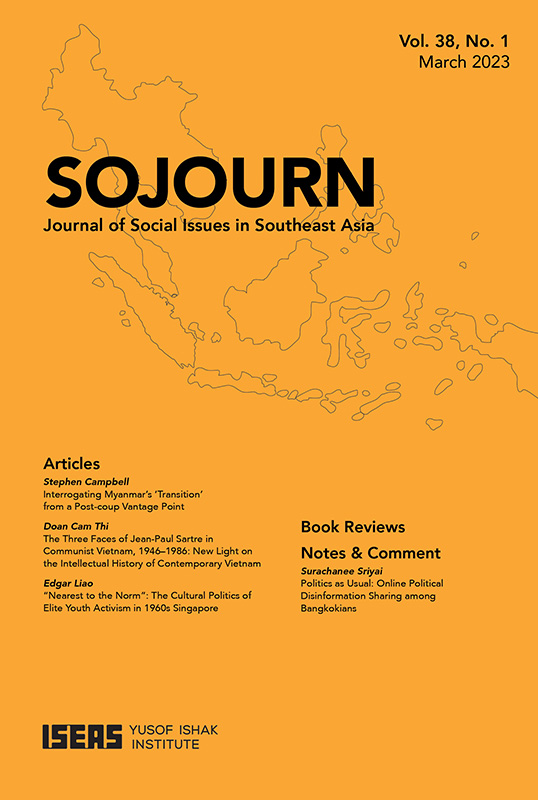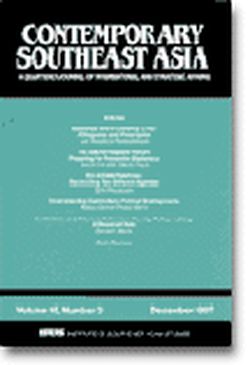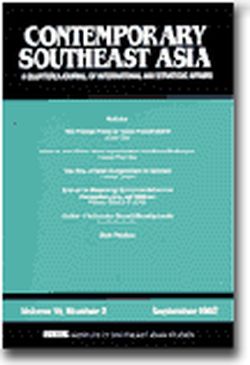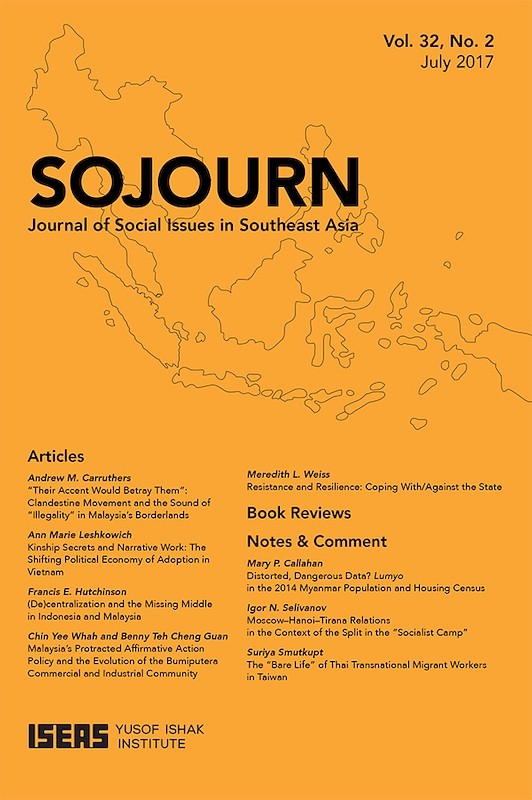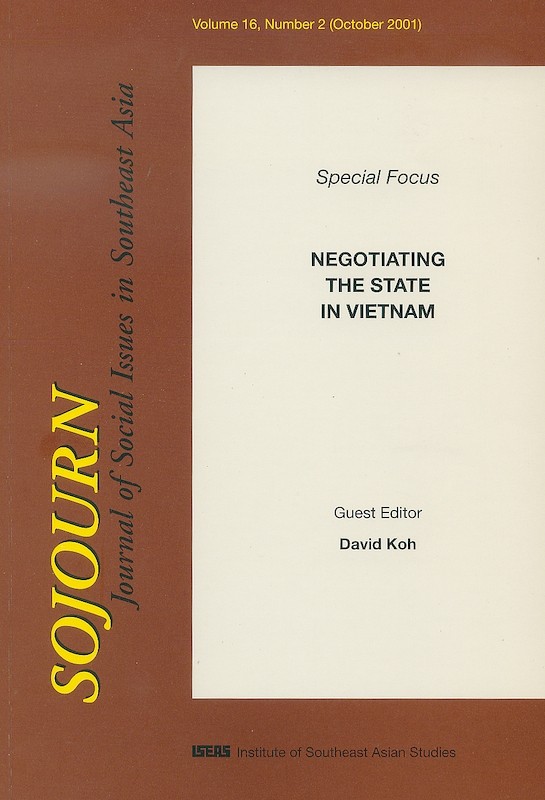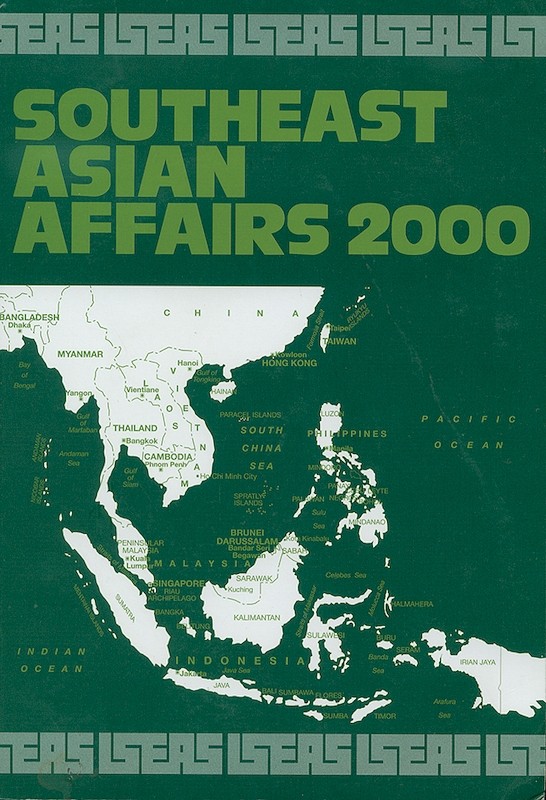Contemporary Southeast Asia: A Journal of International and Strategic Affairs Vol. 14/3 (Dec 1992)
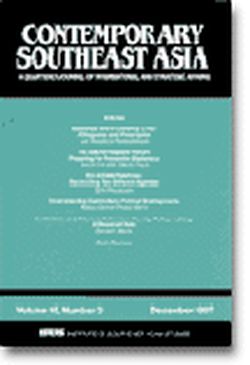
Date of publication:
December 1992
Number of pages:
78
Code:
CS14/3
Contents
-
Preliminary pages
- ARTICLES
-
The 1992 Revised Constitution of Vietnam: Background and Scope of Changes, by Russell Hiang-Khng Heng, author see abstractA revised Vietnamese constitution was adopted in April 1992 after an unprecedented level of debate and publicity. Taken at face value, the many changes in the charter will mean a streamlined government as well as better legal protection for the greater individual liberties that have come with the policy of reforms since 1986. But some of the changes may challenge the dominance of the Vietnam Communist Party and the latter is proceeding very carefully, particularly in the sensitive area of party-state relationship. Under the circumstances, how useful are constitutional safeguards in Vietnam?
-
Political and Economic Reforms in Vietnam, by Kai M Schellhorn, author see abstractReforms adopted by communist states, and intended to ensure the survival of their regimes, have had a mixed record over the post few years. For Vietnam, the lessons of the fall of the communist regimes in the former Soviet Union and the East European bloc have led it to cautiously adopt an admixture of economic and political reforms that are now beginning to have a salutary impact on Vietnamese society. This article analyses the various reforms adopted by the Hanoi government over a decade-long period, sets out their societal consequences, and details some of the competing pressures on the Communist Party of Vietnam
-
The Scope and Prospects of Foreign Investment in Vietnam see abstractThis article gives a sketch of the evolving investment climate in Vietnam since the country's initial attempts to attract foreign investment in the late 1970s. It sets out the scope of current investment flows, the target sectors of such flows, and prospects for the rest of the decade, particularly once the United States economic embargo is lifted. Also discussed are the current pitfalls which potential investors should be wary of when investing either independently in the country or in joint ventures with Vietncimese partners.
-
New Thinking in Vietnamese Foreign Policy, by Mike Yeong, author see abstractThe end of the Cold War has forced Vietnam to change its foreign policy orientation. Vietnam is today behaving like a responsible member of the international community more than a troublemaker encouraging communist revolution in the region. Its foreign policy is aimed primarily at promoting economic development in the country, but Vietnamese leaders are also mindful of the country's security needs. With the loss of Soviet support in the aftermath of the dissolution of the Soviet Union, the Vietnamese leadership is relying on diplomatic means to preserve the country's security. It is seeking friendship and economic links with a large number of countries, including the United States, Japan and France. The leadership, however, believes that Vietnam's security interests are better served by befriending ASEAN. It hopes to use ASEAN's influence and clout to ward off possible aggression, especially from China.
-
Rehabilitation and Economic Reconstruction in Cambodia, by Mya Than, author see abstractSevere economic dislocation, as a consequence of continuing war and social and political unrest, has been the fate of Cambodia over the post two decades. Now, however, there is a glimmer of hope for the country. The international community is prepared to help Cambodia help itself. This article attempts to analyse the human resource and political development needs of Cambodia that are essential for its economic upliftment. It also sets out the not insignificant pitfalls that lie ahead for the country as it attempts to pursue a semblance of normalcy in its economic affairs.
-
Thailand's Policy Dilemmas Towards Indochina, by Surin Maisrikrod, author see abstractThis article attempts to put into perspective significant turns, as well as critical issues, in Thailand's foreign policy towards the Indochinese states, particularly Vietnam. It argues that Thai foreign policy towards Indochina has always been a reaction to the involvement of major powers - first, the colonial powers, then the United States during the Vietnam War, and then China during the war in Cambodia. Given its intimate interests in the region, and its historical role on mainland Southeast Asia, Thailand, in the post-Cold War period, is trying to formulate a more independent policy towards its eastern neighbours, only to be faced with an increasingly complicated international environment. With more players and different agendas in Indochina, Bangkok's "traditional" role is likely to be marginalized.

